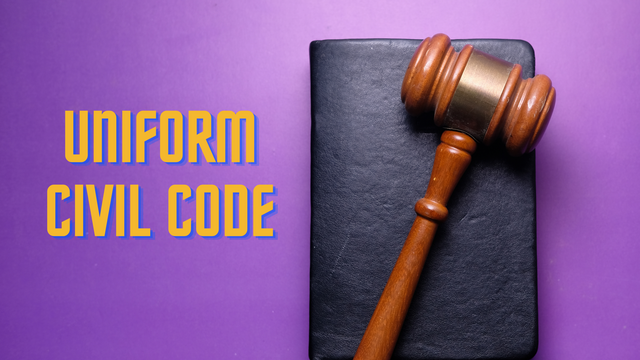Muslim organisations including Jamaat-e-Islami Hind (JIH), Popular Front of India (PFI), and Social Democratic Party of India (SDPI) have opposed the Delhi High Court’s backing of the implementation of the Uniform Civil Code (UCC).
The Delhi High Court had justified its stand by stating the “modern Indian society is gradually becoming ‘homogeneous’, dissipating ‘traditional barriers’ of religion, community, and caste.”
Calling this reasoning “absurd”, PFI Chairman O M A Salam said India’s inherent nature is that of diversity and difference. “In the desire to create a ‘homogeneous society’ lies the problem. Celebrating the differences and respecting each other is our way forward,” he said.
Speaking to The Cognate, JIH Vice President Prof Salim Engineer said that issues like the UCC gain momentum, especially during elections. “It is a political issue rather than a real issue. Courts must abstain from giving observations that have political implications,” he added.
O M A Salam called the move ‘out of context’, ‘unwanted’ and ‘unacceptable’. According to him, the UCC issue is always used as a convenient tool by the BJP and its Hindutva allies to “gather majority votes by creating communal polarisation.”
“Whenever BJP foresee an imminent electoral loss, it is part of their strategy to dig out normally laying-buried polarisation tools like ‘need’ for Uniform Civil Law and ‘danger’ of Muslim Personal Law,” he said.
The UCC has for long generated much political debate as a matter related to minority rights, especially their right to enjoy separate personal laws.
“Such laws must only be implemented after consulting all parties – minorities, tribals, etc. It cannot be imposed on them,” Prof Salim Engineer said.
M K Faizy, National President of the SDPI said, “the decision to change or eradicate any rites or codes of a community that seems illogical to others should come from within the community and is not to be thrust upon them by any authority.”
“The judiciary needs to be more cautious about standing with contentious issues which would adversely affect the harmony of the country,” he added.
‘Muslims are Obliged to Follow the Sharia in these Matters’
Maintaining that attempts to “impose” a uniform civil code in the name of social reform and gender justice would prove “counter-productive”, Jamaat e Islami Hind (JIH) chief Jalaluddin Umari had in 2016, said, “Muslims consider divorce, polygamy and other personal laws an intrinsic part of their religion, and are hence obliged to follow the Sharia in those matters. The government should respect this position of Muslims, instead of conspiring to put an end to it.”
In 2019, the All India Muslim Personal Law Board (AIMPLB) said that the concept of the Uniform Civil Code (UCC) is a threat to the diversity of India and termed it “anti-national”. They also warned against any “legislative or judicial” move to impose Uniform Civil Code.
India needs Uniform Civil Code, Can’t Remain ‘Mere Hope’: Delhi HC
The Delhi High Court on Friday said there is a need for the Uniform Civil Code (UCC) to become a reality and that it must not remain a ‘mere hope’. The court directed that a copy of the order be communicated to the Secretary, Ministry of Law & Justice, Government of India, for necessary action as deemed appropriate.
The case related to a couple from the Meena community—a Schedule Tribe in Rajasthan. As the husband had sought a divorce, the wife contended that the Hindu Marriage Act, 1955, didn’t apply to them as Meena was a notified Scheduled Tribe.
UCC essentially refers to a common set of laws governing personal matters such as marriage, divorce, adoption, inheritance, and succession for all citizens of the country, irrespective of religion. Currently, different laws regulate these aspects for adherents of different religions and a UCC is meant to do away with these personal laws.
Related
Rushda Fathima Khan is the Staff Reporter for The Cognate.











































